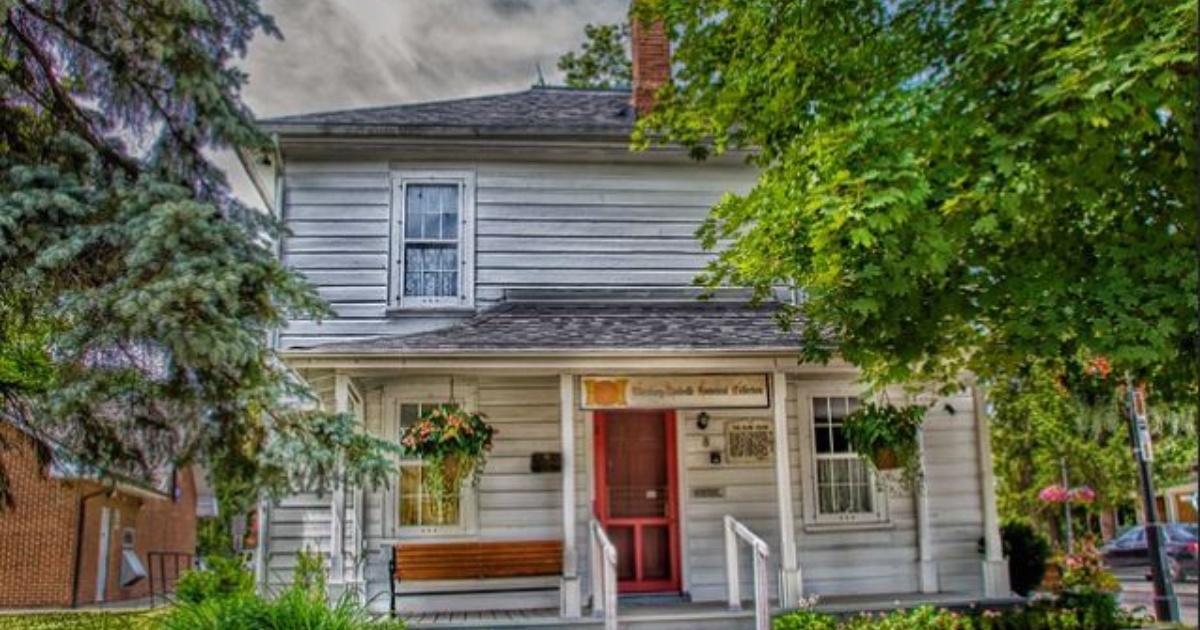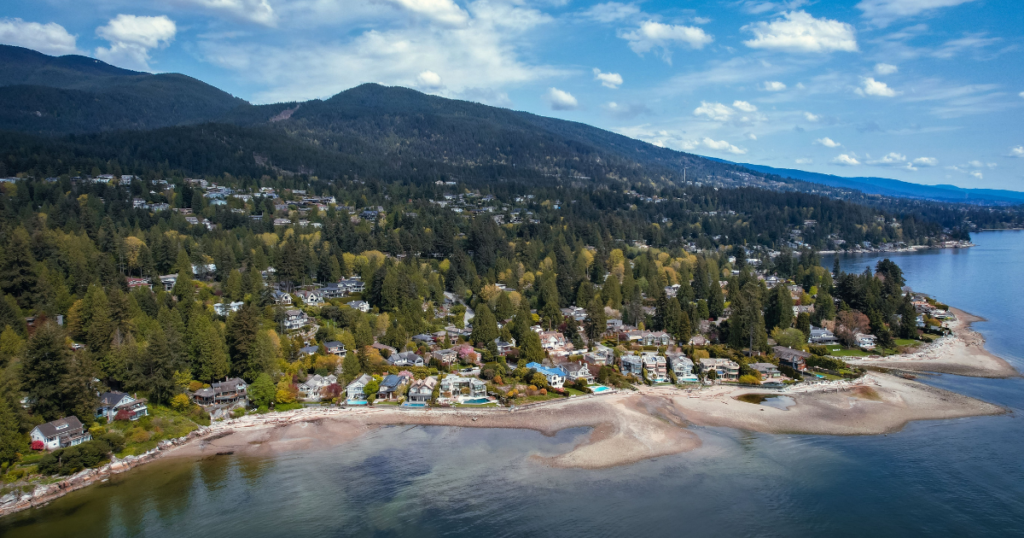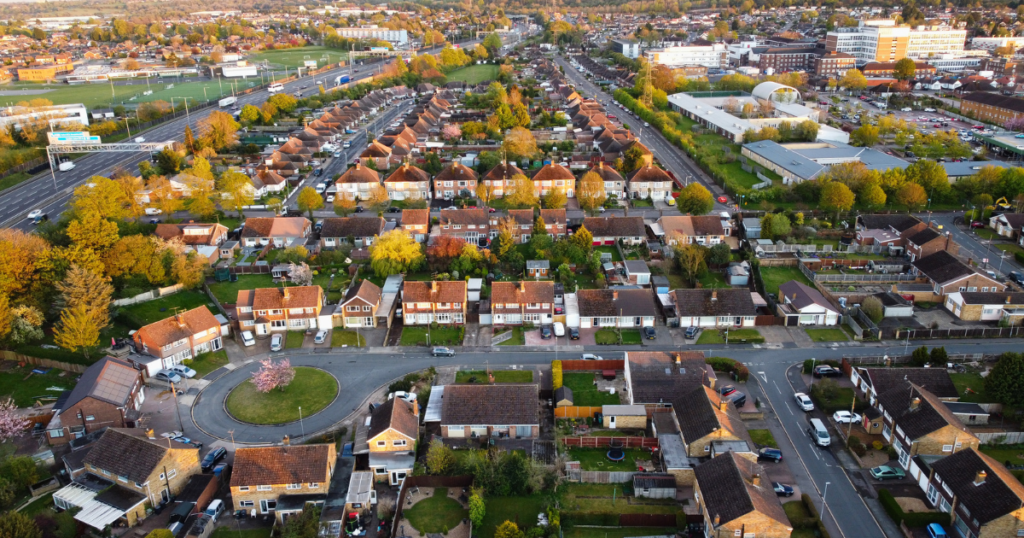British Columbia’s rich history is vividly encapsulated in its heritage homes. These properties, often more than a century old, are not just residences but pieces of living history.
The market for BC heritage homes offers a unique opportunity for buyers to own a part of this historical tapestry.
Each heritage home in BC comes with its unique architectural styles, stories, and a distinct character that sets it apart from modern constructions.
Related: Exploring the Charm of British Columbia Waterfront Properties

Historical Significance of BC Heritage Homes
The historical significance of British Columbia’s heritage homes is a topic that delves into the architectural, cultural, and historical fabric of the region.
These homes, often dating back to the late 19th and early 20th centuries, represent a tangible connection to BC’s past, embodying the architectural trends, cultural influences, and societal norms of their respective eras.
Architectural Legacy and Styles
BC’s heritage homes showcase a variety of architectural styles that were prevalent during different historical periods.
For instance, the Victorian and Edwardian styles reflect the British influence on Canadian architecture, characterized by ornate detailing, gabled roofs, and spacious verandas.
The Arts and Crafts movement, which emphasized handcrafted artisanship over industrial mass production, is also evident in many BC heritage homes.
These styles not only represent aesthetic preferences but also technological advancements and cultural shifts of their time.
Cultural and Social Reflections
Heritage homes in BC also serve as a mirror to the cultural and social history of the region. The size, design, and location of these homes often reflect the social status and lifestyle of their original inhabitants.
For instance, grand Victorian mansions might have been owned by wealthy merchants or influential community leaders, while smaller Craftsman bungalows could have housed middle-class families.
These homes, therefore, offer a glimpse into the diverse social fabric of historical BC.
Preservation of Historical Narratives
Preserving heritage homes is crucial for maintaining the historical narrative of BC. Each home has its own story, often linked to significant historical events or figures.
By conserving these structures, we retain physical evidence of our past, providing an educational resource and a source of community pride.
Heritage homes act as a reminder of the region’s development, showcasing how architectural styles evolved and how communities grew over time.
The Role in Community Identity
Heritage homes contribute significantly to the identity and character of BC communities. Neighborhoods with well-preserved heritage homes often have a distinct charm, different from areas with modern buildings.
These homes add aesthetic diversity to the urban landscape and are frequently featured in cultural tours, attracting tourists and history enthusiasts alike.
Types of Heritage Homes Available in BC
In British Columbia, the variety of heritage homes reflects the rich tapestry of the region’s architectural history.
These homes, spanning various styles and periods, offer a glimpse into the past, each with its unique charm and historical significance.
Here’s an overview of some of the prominent types of heritage homes available in BC:
Victorian and Edwardian Homes
Victorian and Edwardian homes are among the most recognizable heritage homes in BC. Victorian homes, dating from the late 19th century, often feature elaborate decorations, asymmetrical shapes, and steep rooflines.
They are known for intricate woodwork, large bay windows, and spacious porches. Edwardian homes, which followed the Victorian era, are typically less ornate but still feature elements like large windows and elegant frontages.
These homes reflect the British influence on Canadian architecture during the colonial period.
Craftsman Bungalows
The Craftsman style, popular in the early 20th century, represents a shift towards simplicity and handcrafted artisanship.
Craftsman bungalows in BC often feature low-pitched roofs, exposed rafters, and a mix of materials like wood, stone, and brick. Interiors are characterized by built-in furniture, large fireplaces, and an emphasis on natural light.
These homes were a response to the Industrial Revolution, favoring handmade details over mass-produced ornamentation.
Art Deco and Moderne Buildings
Art Deco and Moderne buildings, though less common, are part of BC’s architectural heritage. These styles emerged in the 1920s and 1930s, showcasing a more streamlined, geometric aesthetic.
Art Deco buildings often feature bold, symmetrical designs with elaborate ornamentation, while Moderne (or Art Moderne) homes lean towards a sleeker, more streamlined look, often with curved forms and horizontal lines.
Colonial Revival Houses
Colonial Revival houses, inspired by the architectural styles of early American colonies, can also be found in BC.
These homes are characterized by their symmetrical façade, gabled roofs, and classical details like columns and pediments.
They often incorporate a central entrance with an elegant hallway and are designed to evoke the charm and grandeur of historical colonial architecture.
Log Homes and Cabins
Reflecting BC’s pioneer history and abundant natural resources, log homes and cabins are quintessential to the region’s heritage.
Built using locally sourced timber, these homes are known for their rustic appeal, with exposed log construction, simple, functional layouts, and a strong connection to the natural surroundings.
Heritage Conversion Lofts
In urban areas like Vancouver, heritage conversion lofts represent a unique segment of the heritage home market.
These are often historical industrial or commercial buildings that have been converted into residential spaces. They retain original architectural features like exposed brick walls, large windows, and high ceilings, blended with modern amenities.
Each type of heritage home in BC offers a distinct living experience, steeped in history and architectural beauty. These homes not only serve as residences but also as tangible links to the past, preserving the architectural and cultural heritage of British Columbia.
Recommended: Before You Buy a Townhouse in the Province of British Columbia
Factors to Consider Before Purchasing a BC Heritage Home
Purchasing a heritage home in British Columbia is a unique experience that combines the joy of homeownership with the stewardship of a piece of history.
However, it’s important to consider several key factors before making such an investment. These considerations ensure that potential buyers are well-informed about the specific challenges and responsibilities that come with owning a heritage property.
1. Understanding Heritage Designation and Restrictions
- Heritage Status: Determine whether the property is officially designated as a heritage home, as this can impact what alterations can be made.
- Restrictions and Guidelines: Familiarize yourself with any local heritage conservation guidelines or restrictions that may apply to renovations, restorations, or alterations.
2. Cost of Maintenance and Renovation
- Higher Maintenance Costs: Heritage homes often require more maintenance than newer homes, due to the age and nature of their construction materials and techniques.
- Renovation Costs: Restoring or renovating a heritage home to its former glory or updating it for modern living can be costly, especially if specific historical details need to be preserved or replicated.
3. Availability of Specialized Professionals
- Expertise in Heritage Conservation: It’s important to work with contractors and architects who specialize in heritage properties, as they will be familiar with the best practices for preserving the home’s historical integrity.
- Limited Pool of Experts: Keep in mind that there may be fewer contractors with the necessary expertise in your area, which could impact the cost and timeline of renovations.
4. Insurance and Financing Considerations
- Insurance Premiums: Insurance for heritage homes can be higher than for non-heritage properties due to the perceived increased risk and the cost of potential repairs using period-appropriate materials and techniques.
- Financing Challenges: Some lenders may have specific requirements or restrictions when it comes to financing the purchase of a heritage home.
5. Long-Term Value and Market Considerations
- Resale Value: Heritage homes can be a good investment as they often retain or increase their value due to their unique character and historical significance.
- Market Niche: The market for heritage homes can be more niche, potentially affecting resale times and audience.
6. Personal Commitment and Lifestyle Considerations
- Lifestyle Fit: Consider if living in a heritage home suits your lifestyle and needs, especially in terms of space, layout, and modern amenities.
- Commitment to Preservation: Owning a heritage home often comes with a sense of responsibility to preserve a piece of history for future generations.
7. Energy Efficiency and Upgrades
- Energy Efficiency: Older homes may not be as energy-efficient as newer ones, and upgrading them for energy efficiency while preserving their historical character can be a challenge.
- Modern Amenities: Assess the feasibility and cost of adding modern conveniences and systems (like heating, plumbing, electrical) while respecting the home’s historical integrity.
8 Best Places to Buy Heritage Homes in British Columbia
British Columbia, with its rich history and diverse cultural heritage, offers several prime locations where you can find beautiful heritage homes.
These areas combine the charm of historical architecture with the amenities of modern living, making them sought-after by those looking to purchase a heritage property.
Here are some of the best places in BC to consider:
Victoria
- Historical Significance: As the capital city of British Columbia, Victoria is renowned for its well-preserved Victorian and Edwardian buildings.
- Areas to Explore: Neighborhoods like James Bay, Fairfield, and Rockland are filled with stately heritage homes, many of which date back to the 19th century.
Vancouver
- Diverse Architectural Styles: Vancouver is known for its varied architectural styles, from Victorian and Craftsman homes to Art Deco buildings.
- Notable Neighborhoods: Areas like Kitsilano, Shaughnessy, and Strathcona offer a range of heritage homes, including grand estates and charming bungalows.
New Westminster
- Rich History: Established as the capital of the Colony of British Columbia in 1858, New Westminster is steeped in history.
- Queen’s Park Area: This area is particularly noted for its collection of well-maintained heritage homes, featuring a variety of architectural styles.
Kelowna
- Cultural Heritage: Kelowna, located in the Okanagan Valley, is known for its cultural heritage and historic buildings.
- Heritage Conservation: The city has a strong commitment to heritage conservation, offering a mix of residential heritage properties.
Nelson
- Preserved Historical Buildings: Nelson boasts over 350 heritage buildings, many beautifully preserved, reflecting the city’s rich history as a mining town.
- Victorian Charm: The city’s downtown area is particularly noted for its Victorian architecture, making it a unique place to own a heritage home.
Fort Langley
- Historical Roots: Often referred to as the “Birthplace of British Columbia,” Fort Langley is rich in historical significance.
- Rural and Quaint Setting: The area offers a mix of heritage homes set in a quaint, rural environment, ideal for those looking for a quieter lifestyle.
Penticton
- Scenic Beauty: Located between Okanagan and Skaha lakes, Penticton is not only known for its natural beauty but also for its historical homes.
- Downtown Area: The downtown area and surrounding neighborhoods offer a selection of heritage homes, many with views of the lakes.
Kamloops
- Historical Neighborhoods: Kamloops has several neighborhoods with a rich history and a variety of heritage homes.
- Period Architecture: These homes often feature unique period architecture, with some dating back to the early 20th century.
Each of these locations offers its own unique blend of historical significance, architectural beauty, and community atmosphere.
Prospective buyers should consider their lifestyle preferences, budget, and the specific character of each area when looking for heritage homes in British Columbia.
where to Find BC Heritage Homes for Sale?
Finding heritage homes for sale in British Columbia involves a combination of online resources, specialized real estate agents, and local community networks. Here are some effective ways to locate these unique properties:
Specialized Real Estate Websites
- Heritage-specific Real Estate Listings: Some websites specialize in historic or heritage properties. Examples include sites like Historic Properties or Heritage House Realty, which focus on older homes with historical significance.
- General Real Estate Portals: Websites like Realtor.ca or Zillow can also be used to search for heritage homes. Many of these sites allow you to filter searches by the age of the property, which can help identify older, potentially heritage-listed homes.
Real Estate Agents Specializing in Heritage Homes
- Local Expertise: Agents who specialize in heritage properties in BC will have the necessary knowledge and network to find available homes. They can also provide valuable insights into the specific considerations of owning such a property.
- Networking: These agents often have networks that give them early or exclusive access to listings before they hit the open market.
Heritage Preservation Societies and Organizations
- Local Heritage Societies: Groups dedicated to preserving local history often have resources or contacts related to heritage homes for sale.
- Online Forums and Social Media Groups: Joining online communities focused on heritage conservation in BC can provide leads and insider knowledge about available properties.
Community Bulletin Boards and Local Media
- Local Newspapers and Magazines: Local publications often have real estate listings, including heritage homes.
- Community Bulletin Boards: In areas known for their heritage properties, local cafes, community centers, and historical societies might have bulletin boards with listings.
Networking and Word of Mouth
- Local Events and Tours: Attending local events, historical tours, or joining heritage preservation groups can connect you with homeowners or realtors who have information about heritage homes for sale.
- Word of Mouth: Sometimes, the best way to find a unique property like a heritage home is through word-of-mouth recommendations.
Auctions and Estate Sales
- Property Auctions: Occasionally, heritage homes may be sold through auctions or estate sales. Keeping an eye on these can sometimes lead to finding unique properties.
Visit Historical Neighborhoods
- Drive or Walk Around: Sometimes, simply exploring historical neighborhoods in cities like Victoria, Vancouver, or New Westminster can help you spot ‘For Sale’ signs on heritage homes that may not be listed online yet.
By combining these resources, you can increase your chances of finding the right heritage home in BC. Remember, patience and due diligence are key, as these types of properties don’t come on the market as frequently as modern homes.



